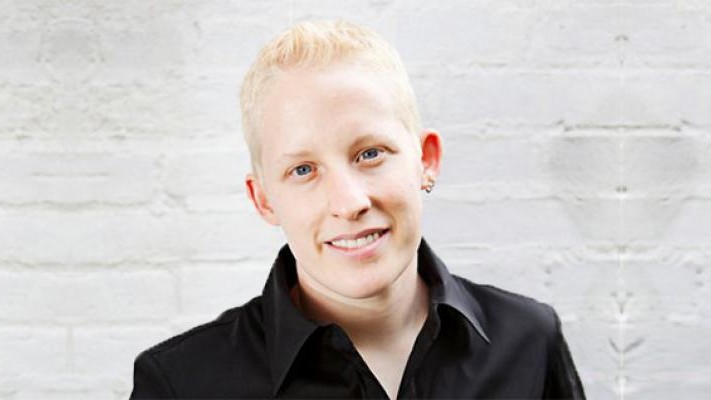Sociologist Tey Meadow Studies Changing Landscape for Trans Kids

Tey Meadow dedicates her first book “to the kids who are different and the adults who ease the way.” Published in August by University of California Press, Trans Kids, Being Gendered in the Twenty-First Century, is about how families navigate this fast-moving social change.
Until recently, Meadow said, people generally waited until adulthood to come out as transgender, even if they knew it much earlier. Now there are very young children who insist they are not the gender they were born with, and their parents and others are advocating for them to be recognized for who they are.
It is rare to watch a social category emerge in real time, noted Meadow, (BC’98), an assistant professor of sociology who joined the Columbia faculty from Harvard in 2016. “People are puzzling out what makes some small minority of very young boys and girls depart, sometimes radically, from the type of gender behavior other children appear to enact naturally and automatically.”
Interviewing dozens of families all over the U.S., she focused on the stories of several transgender children as they find their way in the world. Even in deeply conservative areas, including small towns in the rural South, Meadow found parents who accepted their child’s changing gender identity.
“Geography matters, but not as predictably as you might think,” she said in an interview this summer. “Some families in major metropolitan areas had Children’s Services knock on their doors because somebody thought they were abusing their child by allowing that child to be trans.”
Meadow wasn’t planning to write about transgender children when, in 2009, frustrated with the progress of her Ph.D. dissertation on a different topic, she volunteered at a conference for LGBTQ grass-roots organizers. There, she met someone working in K-12 schools where children were transitioning from one gender to another.
“Even as someone with a long history of LGBT organizing, I didn’t realize the scale on which this was happening,” she said. “It very quickly became apparent that this was what I wanted to write about.” Her new dissertation topic became Trans Kids.
Coming to Columbia was a welcome return to New York for Meadow, who grew up in Westchester County and has a law degree from Fordham and a Ph.D. from New York University. “It had always been in the back of my mind that at some point there would be an opportunity to come back,” she said.
Her arrival dovetails with the University’s efforts to increase faculty diversity, including President Lee C. Bollinger’s allocation of $100 million over the next five years, on top of $85 million dedicated since 2005, for recruitment and career development of faculty, doctoral and post-doctoral students who have been underrepresented in higher education.
The provost’s office has allocated $1.5 million to hire faculty in the area of LGBTQ studies who can act as a catalyst for such scholarship across the University. Historian George Chauncey, English professor Jack Halberstam and Tonda Hughes at the School of Nursing joined Columbia as part of this initiative. A fourth position, in the Department of Religion, should be filled soon.
“Professor Meadow has already made significant contributions toward improving both the climate and the breadth of LGBTQ scholarship at Columbia,” said Dr. Dennis Mitchell, vice provost for faculty diversity and inclusion for the University. “We believe she will be an anchor as we begin recruitment for additional hires in her field of study this fall.”
With an academic career and a six-year-old child, Meadow says her activism now is different from when she was protesting in the streets and knocking on doors in Congress. “I’m trying through the training of students and the production of research to aid in whatever ways I can the communities that I support,” she said.
Meadow’s next project will focus on how people manage emotional uncertainty in their lives, an outgrowth of her research on trans children. “I had a lot of conversations with parents who were frightened of what might happen for their children as they grow up,” she said.
In the fall, she will be teaching interview techniques for master’s students in a required course, as well as a graduate course on the sociology of risk and uncertainty—how people measure risk, why they engage in risky activities and how we understand potential loss.
Social change is inevitable, Meadow said, although it can be uncomfortable. “Sometimes the only thing to do is sit and wait for the discomfort to subside,” she said. “We have reached a point where there are enough transgender adults in visible positions living full lives that it makes sense for us to understand that this is a way people are.”